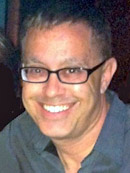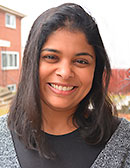
THE BRIDGE TO COLLEGE
You Have The Time Now – USE IT!

We often ask for feedback from our students to get a different voice about admissions. Allow me to present the thoughts of Siva Annamalai, a former client and now current editor for UCA who explains his experience pursuing research as a pre-med.
“The transition between the senior year of high school and freshman year of college can certainly be stressful. But this stress is different than cramming for exams or running across campus to get to class on time. Rather, students face the stressors of preparation: getting dorm supplies, figuring out meal plans, and setting themselves up for academic success. For premedical students, proper planning can often define how a student’s academic career will progress in college and beyond. Capitalizing on this time is crucial.
“In my experience, the goal isn’t to stay busy but instead figuring out how to gain meaningful premedical experiences without becoming overwhelmed.
“I knew research was something I wanted to explore at the next level. In my high school classes, I asked a lot of “why?” questions. After the third or fourth inquiry, my teachers started to claim that we didn’t have time to get into the details and pushed us along to the next topic. But with the luxury of not having to worry about classwork, I spent the initial two weeks after graduation looking through my university’s list of research faculty.
“After searching up each professor’s recent research publications and decided whose work would genuinely interest me, I launched emails. In each, I introduced myself, attached my CV, and optimistically explained my interest in their research. My optimism was quickly quenched when I received two responses from over 100 emails. One of the responses explained that they didn’t have space in their lab to take on new students.
“But I only needed one ‘yes.’ After an interview with the professor, I was offered a position as an Undergraduate Research Assistant in the lab, which I accepted with so much excitement. Two years later, I am still working in that lab, with the same professor, and I am still just as excited about the research as I was when I began.
“As I go proceed along my premedical journey, I see my peers starting to reach out for research opportunities in their second or third year of college. Although there’s nothing wrong with this, it’s important to keep in mind that research doesn’t happen overnight. “If that were the case, we would have miracle drugs to every pathology known. You must first understand the basic theories of the field, then dedicate time to learning the specifics of your project, then master the lab techniques that you will be using during your project, and then finally you can get started.
“Starting early not only allows you to become more involved with your research over the years spent at university, but it also allows you to develop a meaningful relationship with your research mentor. This mentorship can help you not only with research, but with other parts of your premedical journey, such as getting opportunities for clinical experience (and recommendation letters for medical school applications).
“Also, starting early allows you to pace yourself. Instead of working 8 hours a day non-stop for one summer, you have the ability to get things done rationally over four years. Not only will this prevent burnout (which is a very real challenge), but this will also provide you the flexibility to dedicate time to other aspects of the AMCAS application, such as keeping up with classes, volunteering, and other experiences.
“I reflect upon my experiences throughout college; I can confidently say that the best thing you can do for yourself is to get involved somehow and to do it as early as you can. It’s easy to say, “I’ll start next semester,” but eventually next semester is when you start applying to graduate school. Although the worst outcome is a simple no, pursue the best outcome: setting yourself up for lifetime success!”
Siva is correct: outreach leads to opportunities. To maximize your efforts, consider using NVC – non-violent communication – which tends to soften your requests and entice others to invite you into their worlds. For more information and expert guidance, do not hesitate to contact UCA.Robert LeVine is the founder and CEO of University Consultants of America, an independent educational consultancy assisting students around the world with applications to colleges, universities and graduate schools. For more information, call University Consultants of America, Inc. at 1-800-465-5890 or visit www.universitycoa.com
FAMILY MATTERS
Communities and Milestones
By Anu Verma Panchal

A few months ago, I had the good fortune to stand by my parents’ side as they celebrated a significant milestone, their golden anniversary. One of my favorite parts of the event was that in addition to uncles, aunts and cousins, we had with us their closest friends, the extended “framily” that had helped my parents recreate a sense of home and family when they were thousands of miles away from the place of their birth.
Circa 1980, with a toddler and 6-year-old in tow, my parents moved to a little town in Zambia called Kabwe. They knew no one and nothing about this new country beyond my dad’s offer letter and one phone call with a relative who had once lived in Africa.
But on their very first evening, there was a knock at the door. It was a young Malayalee couple with two little boys our age. Hearing that a new family from Kerala had arrived, they had stopped by to welcome us. From that one introduction, my parents were immediately absorbed into a group of friends.
The same thing happened every time we moved towns. The news of our impending arrival reached before we did, and we were pulled into existing Malayalee social circles. Our weekends were spent at each other’s houses, uncles in safari suits swilling whiskey, aunties in sarees holding deafening conversations while we ran around and played. As the years passed, my parents grew into the veterans who welcomed new families and organized the elaborate cultural events that gave the community a sense of home away from home.
And all around town – and across the South Asian diaspora – others were doing the same thing. In Tamil, in Bangla, in Hindi, they created communities that served a familial function for each other. Community building seems to be in our genes. Or, as a friend once told me, “We’re like goats ... we can only travel in packs.”
During the college years and in my early 20s, plugging into the local desi community was nowhere close to being a priority; in fact, I reveled in the freedom from it. It was irritating, even, to see the insularity that I imagined permeated those associations. Why move to another country and only hang out with the same people? Why not at least try to assimilate?
It was only when I became a parent that I found myself searching, maybe even yearning, for some small level of connection. I wanted my daughters to learn Bharatanatyam like I had, wanted them to celebrate Hindu holidays and go to the temple occasionally. Does that mean that I want my communities to be restricted by ethnicity, language or religion? Certainly not. I am blessed with close “framily” from many backgrounds, and I enjoy Gasparilla as much as I do Onam and Navaratri.
Yet I am grateful for the generations who came before we did and established everything from the Tampa India Festival to the India Cultural Center so that we now have the option to dip a toe, an ankle or our whole selves in cultural life if we so desired.
A week before my older daughter was due to leave for college, I took her on one of our habitual visits to the Hindu temple here in Tampa. By a happy coincidence, the pujari on duty that day was the same one who had presided on the day that we had taken her on her first temple visit when she was a 6-month-old baby. “You’re the one who carried her to the front of the room when she was born, and now she’s starting college,” I told him. He beamed. “Look at that!” he marveled.
Look at that indeed. That kind of continuity doesn’t just happen. It’s the result of hard work from a lot of people who came before us, many of whom we’ll never even know. The roots they put down gave us the luxury to pick and choose how much we want to hold on to, because some variation of it has been preserved here for us.